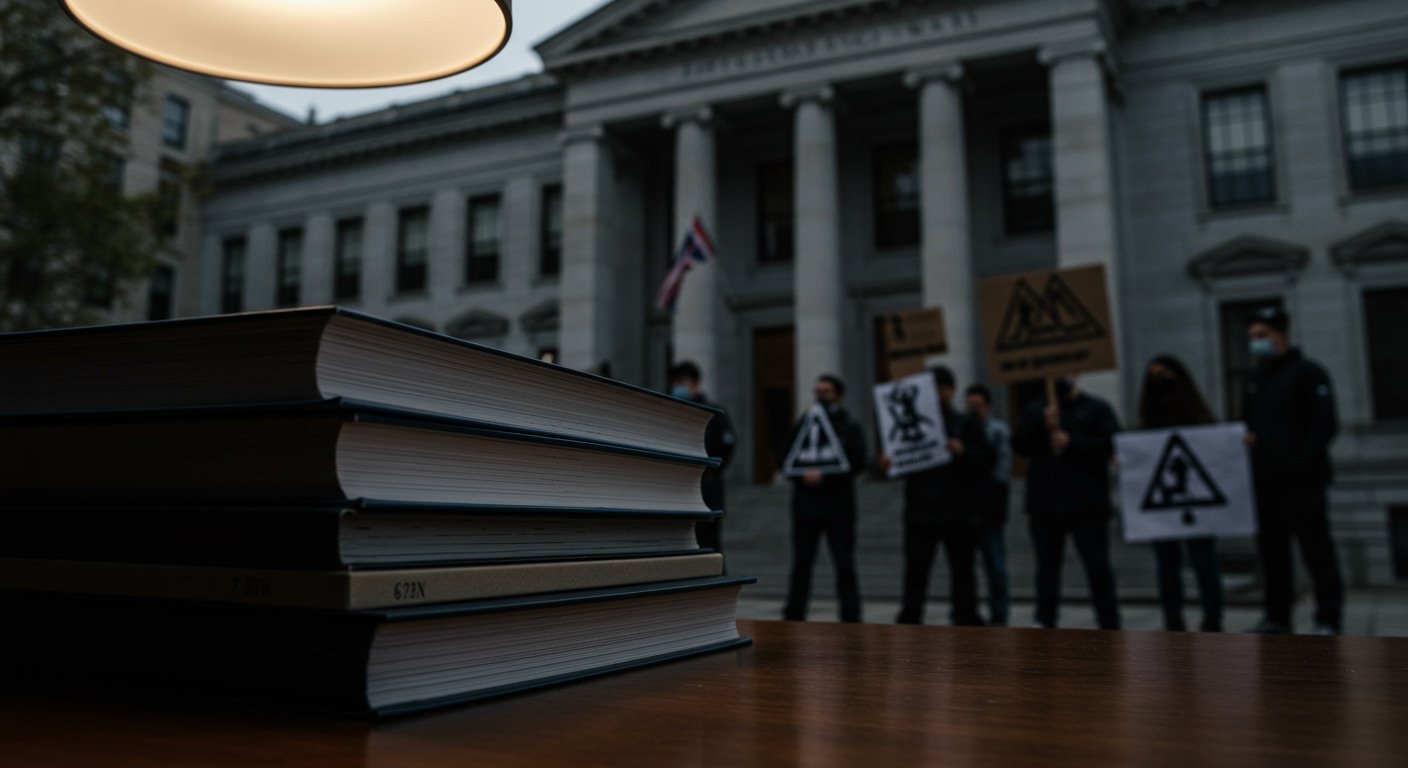Concerns are mounting over the independence and integrity of national media outlets, as major corporations with diverse business interests face increasing pressure and potential influence from political figures, notably former President Donald Trump. An editorial, such as one recently published by the Addison Independent, highlights how this intersection of corporate ownership and political power may be compromising solid journalistic principles.
These concerns are underscored by several high-profile incidents involving major media entities and their owners, suggesting a climate where business considerations could outweigh editorial autonomy, potentially hindering the press’s essential role in holding powerful figures accountable.
Corporate Influence and Editorial Compromise
The editorial cites examples suggesting how the business interests of media owners might impact journalistic operations. Jeff Bezos, owner of the Washington Post, and Patrick Soon-Shiong, owner of the Los Angeles Times, are mentioned in this context, with allegations that their ownership has led to compromised editorial credibility. The structure of modern media ownership, where outlets are often part of larger conglomerates with interests extending far beyond journalism, inherently creates potential vulnerabilities to pressure from political figures who can influence regulatory environments, business deals, and public perception.
One striking example involves Paramount Global Chair Shari Redstone. According to reports referenced in the editorial, Redstone considered the possibility of reaching a pact with President Trump concerning his lawsuit against CBS News. This consideration reportedly began in late October 2024, following Trump’s lawsuit against CBS News and its program 60 Minutes, which alleged “election interference.”
Such interactions between political figures and the leadership of major media corporations raise questions about whether editorial decisions could be implicitly or explicitly swayed by the desire to protect broader corporate interests.
Financial Settlements and Account Control
The financial implications of facing legal challenges from powerful individuals also appear to play a role. ABC News, owned by the Disney corporation, reportedly conceded a $15 million settlement in a defamation suit. While details of the suit itself are not fully elaborated in the summary, the significant monetary value highlights the financial exposure media outlets face, which could potentially factor into their reporting decisions.
The case of Meta, the parent company of Facebook, provides another instance where financial settlements intersected with political disputes. Following the Jan 6, 2021 Capitol assault, Meta had locked former President Trump’s accounts. Although Meta reportedly restored his accounts in early 2023, the company later settled a lawsuit brought by Trump shortly after the inauguration. This settlement included Meta paying $22 million to Trump’s future presidential library, in addition to covering $3 million in legal fees. Critics argue that such substantial payments, even as part of a legal settlement, could be perceived as concessions influenced by political or business pressures.
The Paradox of Free Speech Claims
The editorial also points to a perceived paradox in the rhetoric surrounding free speech. While President Trump has claimed violations of his First Amendment rights in disputes with media and social media companies, the editorial contrasts this with the situation of foreign college students who are allegedly imprisoned abroad merely for expressing opinions on the Gaza-Israeli War. This juxtaposition highlights concerns that claims of free speech defense by powerful figures may sometimes appear selective or self-serving when set against the harsh realities faced by others exercising similar rights in different contexts.
A related legal development cited is the ruling on May 7, 2025, by the 2nd U.S. Circuit Court of Appeals. This ruling required the Trump administration to comply with a Vermont judge’s order concerning Tufts graduate student Rümeysa Oztürk. The order mandated the transfer of Oztürk from a Louisiana prison to Vermont so she could stand trial. While the specific charges against Oztürk are not detailed in the summary, the inclusion of this case alongside discussions of free speech and political pressure on media suggests it as another point of concern regarding the application of justice and individual rights.
The Vulnerability of Diversified Ownership
The core vulnerability identified is that media owners with diverse business holdings are particularly susceptible to presidential influence. A president holds significant power that can impact industries ranging from telecommunications and entertainment to retail and technology – sectors where media parent companies often have substantial investments. This creates a potential conflict of interest, where protecting broader corporate assets might take precedence over pursuing rigorous, uncomfortable journalism that could antagonize the administration.
The editorial emphasizes that the press serves as a vital check on powerful figures. When the independence of this check is potentially undermined by financial interests or political pressure on corporate owners, it poses a significant threat to the democratic function of informing the public and holding power accountable.
Maintaining the integrity of national media requires vigilance against both overt and subtle pressures that could compromise editorial independence. The instances highlighted suggest that the challenges to press freedom in the current landscape extend beyond traditional journalistic hurdles to the complex intersections of corporate power, political influence, and the financial bottom line.













